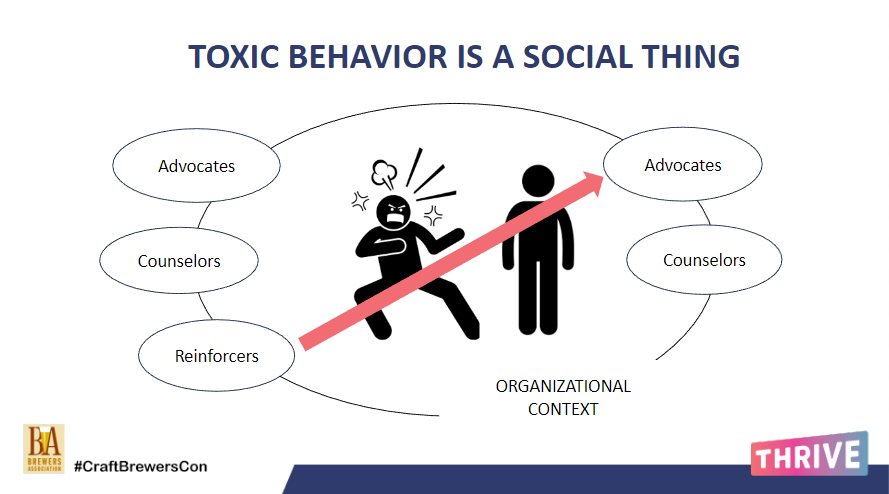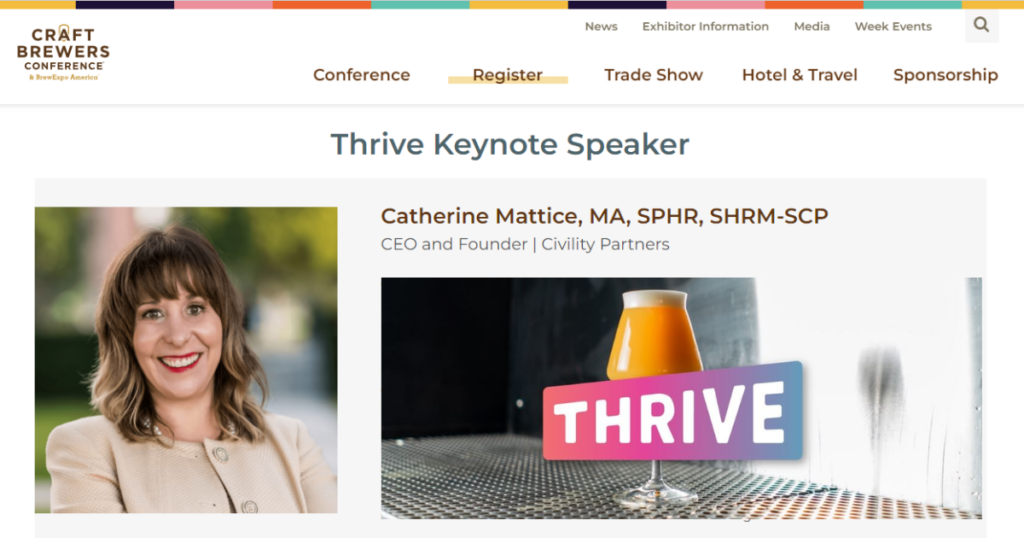Last Sunday, May 7th, I had the honor of being a keynote speaker at the THRIVE pre-conference, which was a roadmap to a safe, inclusive, and equitable experience at the Craft Brewers Conference (CBC). As a conference held in Nashville, TN, a city known for its musical roots and diverse music scene, it was a fitting backdrop for discussions on creating a diverse and welcoming culture in the craft brewing community.
According to a 2018 Brewers Association survey, brewery owners in the US are 93.5% white, with 92.2% of breweries having entirely white ownership. In addition, the same survey found that people of color accounted for only 5% of brewery owners and CEOs.
However, there are also positive signs of progress. The same survey found that women make up 35.5% of brewery employees, up from 29% in 2014.
During my trip, I had the opportunity to explore different bars and immerse myself in the live country music scene. I was struck by the exceptional talent of the musicians and the way people grooved to the music. To add to the excitement, I even found a Taylor Swift standee at my hotel and couldn’t resist taking a picture with it! It turned out that one of my favorite singers was having a concert in Nashville, and the city was buzzing with energy and excitement!
@civilitypartners A little side trip in the hometown of country music after my keynote speaking at the THRIVE pre-conference at the Craft Brewers Conference! #nashville #taylorswift #cbc2023
My session at the Craft Brewers Conference
During my session, titled “Adventures in Turning Around Toxic Work Environments: Real Case Studies from the Trenches,” I spoke about the prevalence of toxic cultures in the workplace and provided practical steps for turning them around, based on my own experience as an expert in this field. The audience had many questions, particularly on the topics of abrasive leadership, workplace bullying, and discrimination, and the discussion kept circling back to the importance of core values.

In the context of turning around toxic work environments, establishing and reinforcing core values is crucial. Toxic cultures often arise when core values are not upheld or when there is a lack of clarity around what those values are. Leaders have a vital role in defining and reinforcing core values, and making sure that employees across the organization are on the same page.
To achieve this, core values should be integrated into all aspects of the organization, including recruitment, onboarding, performance management, and decision-making. Check out my awesome resource on 50 Ways To Bring Your Core Values To Life to learn more!
Odell Brewing’s Session
One presentation that stood out to me was given by Odell Brewing, who shared their journey towards diversity, equity, and inclusion (DEI). They gave an example of how their job postings unintentionally excluded certain groups of people by listing “Passion for craft brew” as a requirement. It was harming their ability to draw diversity into their candidate pool.
When you think about it, the people who have access to craft brew and access to a culture of craft brew are mostly white people in a specific socioeconomic class.
They took it off and saw a huge jump in the diversity of candidates. This qualification had the potential to exclude individuals from diverse backgrounds who may not have access to or knowledge of craft brewing. Upon removing this requirement, they saw a significant increase in the diversity of their candidate pool.
Odell Brewing also advised attendees not to be overwhelmed by the concept of DEI and recommended “think big but take small sips” . One of their tips was to consider where they have the most influence and take small steps towards change. As an example, one of their managers recognized that a female employee had difficulty lifting heavy hop bags. In response, they asked their vendor to supply smaller bags that were easier for women to handle, and the vendor thanked them for their thoughtfulness.
The team at Odell Brewing acknowledged that mistakes are inevitable but emphasized the importance of setting measurable targets to track progress. They tracked the number of women and BIPOC candidates interviewed versus hired and identified areas where they could improve. The first time they looked at the data, women and BIPOC candidates accounted for only 33% of those interviewed and 9% of new hires.
This DEI journey is a valuable example of how small changes can make a big impact on creating a more inclusive workplace. Drive positive change in your organization today.
Final thoughts
Industry leaders can drive change towards inclusivity by prioritizing DEI in their core values, policies, and practices. This means not only promoting DEI, but also creating a culture of positivity where everyone can thrive. Leaders can take concrete steps such as:
- Conducting regular training for a positive work environment for all employees
- Implementing diverse recruitment and hiring practices
- Tracking diversity metrics and setting targets for improvement
Starting an initiative to drive positive change in your organization can seem daunting, but taking action is the first step towards progress. If you need help crafting a DEI policy, implementing training programs, or addressing toxic behaviors within your organization,don’t hesitate to reach out to me. Feel free to send me a message to learn more and start making a difference today!



